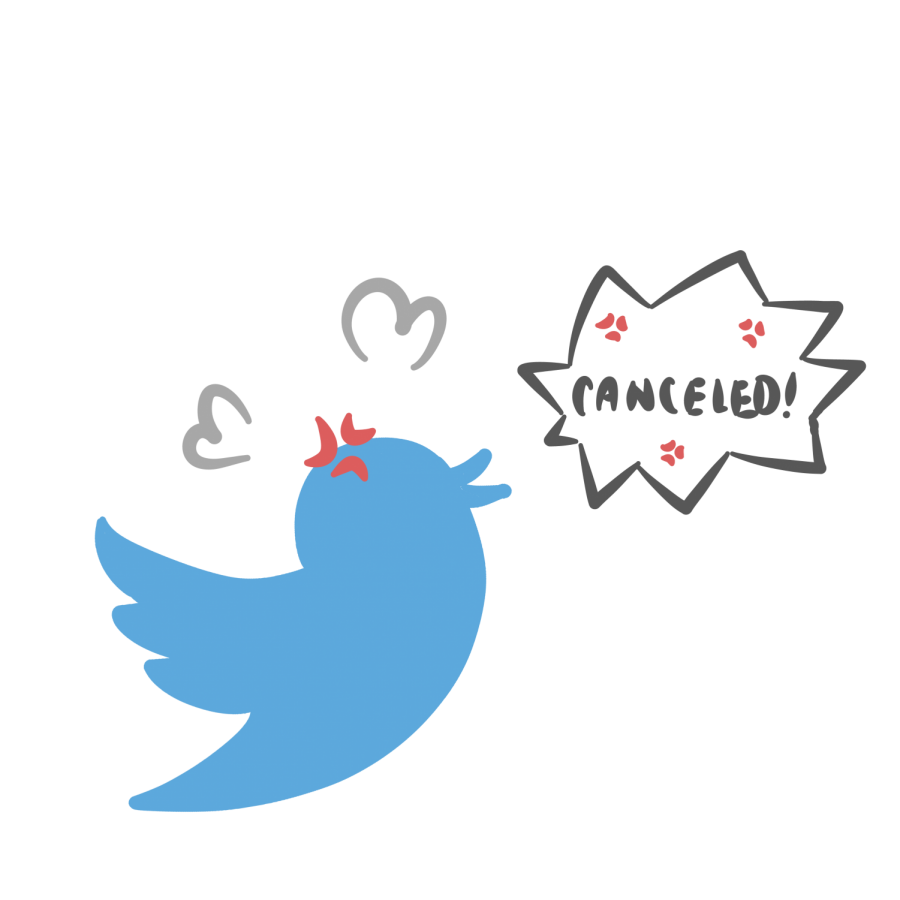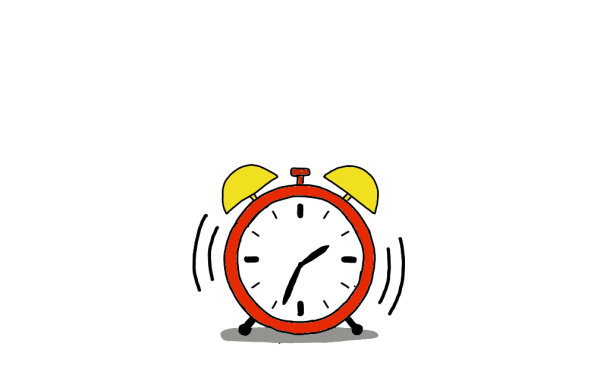Cancel culture promotes mob mentality
Major figures are often cancelled on Twitter, a popular social media platform.
“Cancel culture” is a recent addition to our vernacular, and it has become a pervasive part of online culture and a powerful silencing force. It describes the phenomenon of extreme public backlash against celebrities who express unpopular or offensive views, and it usually involves boycotting the figure’s products and making personal attacks.
Social media has fed the fire of cancel culture, as outrage is far easier and more common than ever before. The structure of social media encourages outrage, sensationalism, and anger by lifting headlines, not content to the top, and it also allows anybody to express opinions and takes at a moment’s notice and, more importantly, without thinking twice.
Overall, cancel culture intends to achieve civility and decency among public figures. It may seem like a good thing, as it enforces a standard of etiquette to refine our cultural voices, but it is more insidious than you might expect. It furthers outrage culture, takes down positive voices, and stifles the voice of the minority. Cancel culture is a deeply damaging force that threatens public discourse.
Cancel culture seems to indiscriminately attack perceived offenders. For example, Papa John’s founder John Schnatter resigned from his position at the company after tapes of him using racial slurs surfaced. He received enormous backlash from the media and was forced to step down from his position as CEO. The only problem is that he did not use the slurs as an attack.
He was describing a situation in which another fast-food mogul, Harlan Sanders, used offensive terms to describe customers. The precise quote was “Colonel Sanders called blacks n—–s,” which, while insensitive, is a far cry from vicious racism. Yet he was still smeared as a racist and forced to leave the company by his fellow executives.
An overzealous social media mob possesses the dangerous power to take down a good person without bothering to check their facts.
The greatest danger of cancel culture is not the individual damage it will cause, but the way it will create an unfair standard for dialogue in our culture. When cancel culture is used to enforce a certain point of view, it damages public discourse irreparably.
Cancel culture has even reached the point of attacking those who simply dissent from the majority. J.K. Rowling recently fell under fire recently for a tweet in which she said, “Dress however you please. Call yourself whatever you like. Sleep with any consenting adult who’ll have you. Live your best life in peace and security. But force women out of their jobs for stating that sex is real? #IStandWithMaya #ThisIsNotADrill.”
Dress however you please.
Call yourself whatever you like.
Sleep with any consenting adult who’ll have you.
Live your best life in peace and security.
But force women out of their jobs for stating that sex is real? #IStandWithMaya #ThisIsNotADrill— J.K. Rowling (@jk_rowling) December 19, 2019
Rowling was expressing a position regarding a long-standing argument between progressives about to what extent transgender rights should impact women’s rights, which is complex and will not be resolved without reasoned debate. This tweet seemed to press all the right buttons, encouraging readers to be themselves and only dissented slightly from the norm.
However, some said that her tweet was transphobic and unacceptable, including the Human Rights Campaign, who fired back, “Trans women are women. Trans men are men. Non-binary people are non-binary. CC: JK Rowling.” Others believe that it was a position as valid as any other.
Trans women are women.
Trans men are men.
Non-binary people are non-binary.CC: JK Rowling.
— Human Rights Campaign (@HRC) December 19, 2019
Unfortunately, she was attacked from all sides for this statement. Seemingly, nobody was satisfied with her tweet, and she was quickly shouted down. One Twitter user lamented “The saddest thing is that the woman who inspired millions of kids to be good to each other… is now a bigot herself.”
This is a crucial point: the loudest voices on the internet shut down someone who simply disagreed.
When our discussions have no room for disagreement, when any minority viewpoint is plastered with labels like “bigoted,” and when the loudest voices always prevail, our discourse falls apart. Seeking the truth relies on good-faith, respectful arguments and not yelling obscenities. If we lose the ability to openly discuss ethics and morality, we will lose the opportunity to learn from the other side, develop nuanced arguments and ultimately turn into two big echo chambers.
We must remember that the best response to real bigotry is to ignore it. Voices who are a real threat to civility will all but disappear if we simply do not give them coverage or the platform of notoriety.
Our culture relies on morality and decency but also requires leniency, forgiveness and grace. Let’s resist the urge to go after the minority, keep our discourse open, and let the real bad apples fall into silence naturally.
Your donation will support the student journalists of The Tide, Richard Montgomery High School's student newspaper. Your contribution will allow us to purchase equipment and cover our annual website hosting costs.











